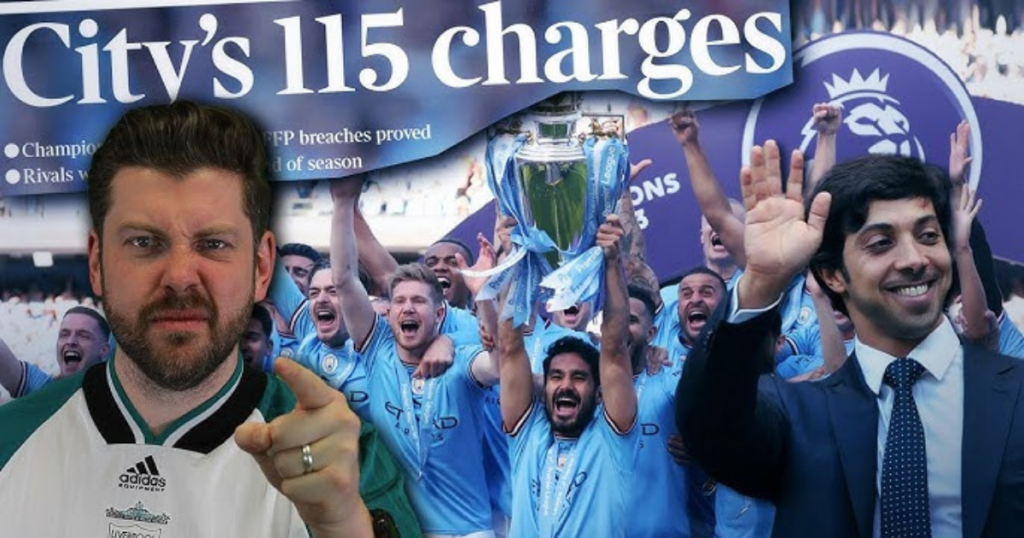In the world of football, few clubs have been as polarising as Manchester City. Known for their financial prowess and success on the pitch, they have faced their fair share of controversies over the years. One of the most significant chapters in the club’s history revolves around the 115 charges they faced regarding alleged breaches of financial rules.
The Financial Fair Play Rules
To understand the gravity of Man City’s situation, we must first grasp the concept of Financial Fair Play (FFP) rules. These regulations, enforced by UEFA, were designed to ensure financial stability and fair competition within European football. Clubs participating in European competitions, such as the Champions League, were required to adhere to strict financial guidelines to prevent excessive spending.
The Investigation Begins
The allegations against Manchester City began when UEFA initiated an investigation into their financial dealings. These allegations primarily revolved around the club’s ability to comply with UEFA’s FFP rules. The investigation aimed to determine whether Man City had breached these rules and, if so, to what extent.
The Independent Commission
To maintain impartiality, an independent commission was formed to oversee the investigation. This commission, led by Murray Rosen KC, an experienced lawyer and Arsenal supporter. It was tasked with evaluating the evidence and making recommendations based on the facts presented.
The Charges Pile Up
As the investigation progressed, the number of charges against Manchester City continued to grow. The club faced a staggering 115 charges related to alleged breaches of FFP rules. These charges ranged from improper accounting practices to overstating sponsorship deals, all with the potential to affect the club’s financial stability.
Man City’s Defence
Man City, not one to back down from a challenge, enlisted a team of skilled defence lawyers to represent their interests. They vigorously denied the allegations and argued that they had complied with the FFP rules. The defence lawyer’s task was to prove that the charges were baseless and that Man City had not violated any financial regulations.
The Bias Question
One significant point of contention throughout the case was the question of bias. Some critics argued that the independent commission. It is led by an Arsenal supporter, might not be entirely impartial when evaluating charges against a rival club. Man City supporters raised concerns about potential bias influencing the case outcome.
Swift Resolution or Ongoing Battle?
The footballing world eagerly awaited a swift resolution to the case, but it proved to be anything but quick. Legal challenges and appeals further extended the timeline, leaving both fans and pundits speculating about the eventual outcome. Would Man City face points deductions, expulsion from the Premier League, or a hefty fine?
Court of Arbitration for Sport (CAS)
In the midst of this legal battle, Man City turned to the Court of Arbitration for Sport (CAS) to seek justice. CAS, an independent body that resolves disputes related to sports, was tasked with reviewing the case and providing a final verdict. The footballing world watched closely as CAS prepared to make a crucial decision.
Precedent and Implications
The outcome of the Man City case had far-reaching implications for the footballing world. Depending on the decision, it could set a precedent for how financial fair play rules were enforced in the English top flight and beyond. Clubs across Europe were keenly observing the proceedings, knowing that the ramifications could extend to their own financial practices.
The Case Outcome
Finally, after a long and contentious battle, CAS delivered its verdict. Manchester City was found guilty of certain rule breaches but was spared from the harshest punishments that some had feared. The club received a fine, but they were not expelled from European competition, nor were they subjected to points deductions in the Premier League.
Conclusion
The Man City 115 charges case was a saga that gripped the footballing world for an extended period. It highlighted the complexity of enforcing financial fair play rules. Ultimately, the outcome was seen as a compromise, sending a message to clubs about the importance of adhering to financial regulations while avoiding devastating consequences.
The ongoing debate on financial fair play in football highlights the need for clubs, governing bodies. The fans strike a balance between financial ambition and rules to maintain the sport’s integrity and competitiveness, as demonstrated by Manchester City’s case.
